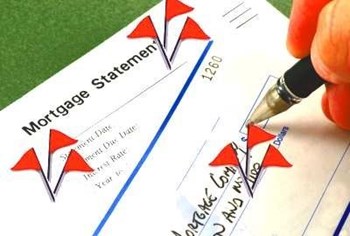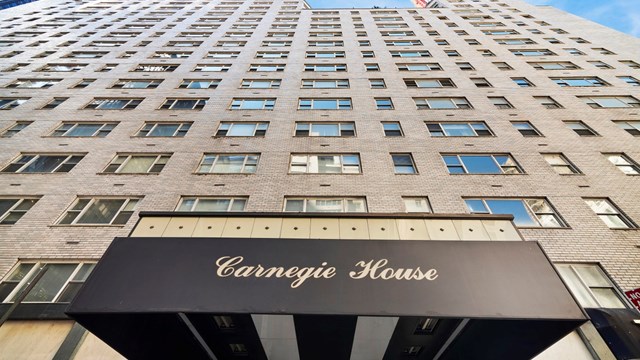
Consider the story of Dave. He was the treasurer for his co-op, and served the board for just over four years. Dave felt that he'd done a tremendous job—not that anyone ever noticed, much less bothered to thank him.
As far as Dave was concerned, his fellow board members were useless. Tim, the president, worked for an oil company and was overseas for big chunks of time, dumping the bulk of his building-related duties in Dave's lap. Wallace, the vice president, had served on the board since the Eisenhower administration and still thought a "computer" was a mathematician. Susan, the secretary, was nice and all but had the business acumen of a pair of loafers. That left Dave.
When Dave's neighbors saw him in the hall, after the perfunctory pleasantries, they would inevitably start grousing about every little thing. The elevator is too slow. The garbage cans smell. The guy in 2A plays loud music until all hours. And on and on and on.
Dave began to feel as though if he were to leave the board, the building would collapse. It's complicated stuff, running a co-op, and no one else on the board was up to the task. No one else even recognized it as a task! Dave was getting fed up. No one appreciated what he did—all the time and effort he volunteered, and for what? Dave never saw a dime for all his extra work.
Then one month, something happened. Dave forgot to pay his maintenance. That was unlike him; he was usually the type who remembered things. For some reason—probably all the stress and frustration—it slipped his mind. Dave was sure that the board president would bring it to his attention when he saw the monthly statement…but since Tim never read the monthly statements (and probably not the annual statements, either), he never said a word. Dave was the only one who pored over those papers, so it was easy for him to let it slide.
And once he'd gotten away with it, well—he decided to try it again. After all, it's not like he didn't devote a considerable amount of his own time to running the building—it's not as though Dave was stealing, right?
Actually, that's exactly what he was doing. To cover up the resulting accounting shortfall, Dave had to act. He created a bogus vendor to do some minor (actually non-existent) repair work in the building—and then paid the vendor with forged checks to cover his sleight-of-hand.
A Dirty Little Secret
Our fictional treasurer sounds like a character from an episode of Law & Order, but unfortunately, he and his ilk—that is to say, thieves—are all too familiar to New York boards.
Stealing "is more common than people would like to admit," says Victor Rich, a partner with RSM McGladrey, a Manhattan-based financial consulting company. "And when it's discovered, they just want to push it under the rug and make it go away—if it's discovered at all."
Indeed, if the level of the larceny in question is not too grand, human nature is to let it slide. "It makes the board look bad, it makes the managing agent look bad, it makes the co-op look bad," says Rich.
Not everybody who makes financial decisions for his or her building is a financial professional. Quite to the contrary—most board members are volunteers, and their work backgrounds might have nothing whatsoever to do with the role they play in service to their building community. That's not to say that board members need to be CPAs or CEOs to be effective (although it doesn't hurt). But they do need to know their way around a spreadsheet.
"You need to have competent board members," Rich says. "It's not a social privilege anymore. Boards should be more professional."
Even if board members are competent, it is awkward, to say the least, to discover that someone you work with, a neighbor, has been stealing. No one wants to be a whistleblower. No one wants to send someone to jail for pocketing pocket change.
"I remember one time, the president of the board caught the treasurer stealing," recalls Gerald Marsden, a partner with Manhattan-based law firm Eisner & Lubin. "He made him promise not to do it again, and didn't look at the books again for another six months!"
That anecdote may have a whiff of humor about it, but board members, Marsden says, have to treat their jobs on the board the same way they'd treat their actual jobs.
"People don't look at it as a business," he says. "They don't take the time to look at monthly statements. They don't check the signatory on bank accounts. They look at it as part-time, 'why bother?'"
On other occasions, Dave, our errant hypothetical board member, may be caught or at least suspected by someone such as the board secretary. But because of a lack of oversight, no one finds out until it's unfortunately too late. According to the professionals who monitor—and prosecute—such things, stealing is like a drug; it requires more and more to equal the initial high.
"The first time it was a dime, then a dollar, then ten thousand dollars, and they just keep going," Marsden says. "They never stop."
Vigilance Pays Off
Fortunately, it doesn't take much to prevent stealing. All you have to do is create an environment in which stealing is impossible without getting caught. Remove the temptation and you remove the thief.
"If you have good controls, segregation of duties, oversight by the board, these things will be minimized," says Rob Grubman, a partner with Grubman Associates of New York CPAs.
"You need to have checks and balances," Rich adds. "More reviews. More competent audits."
"Controls," Marsden says. "Who signs the checks? Who approves the bills? Check the monthly statements. How do they compare to reasonableness, to last year, to the expected budget? The way to control it is have two people responsible for that process," he suggests. "If you're responsible for the budget, you'll come forward" if you catch someone stealing.
"This is the way irregularities start out - starts out small or by accident," Marsden continues. "When they see the door is open, they go jumping in."
Rich agrees. "An audit committee would go a long way towards detecting the problems, whether they be fraud or incompetence," he says.
The bottom line is, people have to pay attention.
"Everyone can't be passive on the board," Marsden says.
Save Yourself
Returning to our hypothetical example: Why did Dave succeed in taking money from his co-op?
Tim, the board president, was an absentee member, if not completely negligent. He didn't read monthly statements and he placed too much trust in Dave without checking on his work. Perhaps his sole oversight consisted of reading the audit reports, months after the fiscal year was over—and far too late to spot Dave's scheming ways. All he had to do was read the monthly statement on one of his many plane trips, and then notice that the supposed "repair work" had never actually been requested or carried out, and he would have foiled the plan.
"Too many boards look at financials once a year," Marsden says. "You've got to do it once a month."
Board members have to be vigilant in performing their fiduciary responsibilities, not once a month or once a year, but always. "A board meeting is not a social gathering," Rich says.
Susan's job was to record the minutes, not do the accounting. Still, the secretary is given monthly statements, and even without a financial background, she could conceivably have wondered why vendors were being paid when repairs had not been requested. And curiosity aside, it wasn't her job to act on her suspicions. "If you see something amiss, bring it to the attention of the board president, who should notify their legal counsel," Grubman says.
The point is, this could happen to any co-op or condo association. Serving on the board is a thankless job and not a terribly lucrative one. Some board members are passive, or unqualified, or negligent, or even criminal. It is human nature to let bygones be bygones. But a board member who steals from the co-op is stealing from his neighbors, and that should not go unpunished.
"People on the board have to take responsibility, deal with the integrity of other board members," Marsden says. "Everybody can't hide their head in the sand."
Greg Olear is a freelance writer, editor, web designer, astrologer and stay-at-home dad living in New Paltz, New York.






Comments
Leave a Comment